Car engine vibration could be the result of a number of problems. Though it is assumed that the vibration originated from the engine, axles in reality might be the real cause.
If you are driving a used car, the problem probably occurs more frequently, and here is the time to know more about its common causes and find out solutions.
Here we discuss in detail causes of engine vibration. Read them carefully to see if you are experiencing one of the symptoms that is causing car engine vibration.
Contents
Popular Causes Of Car Engine Vibration
The crankshaft damper
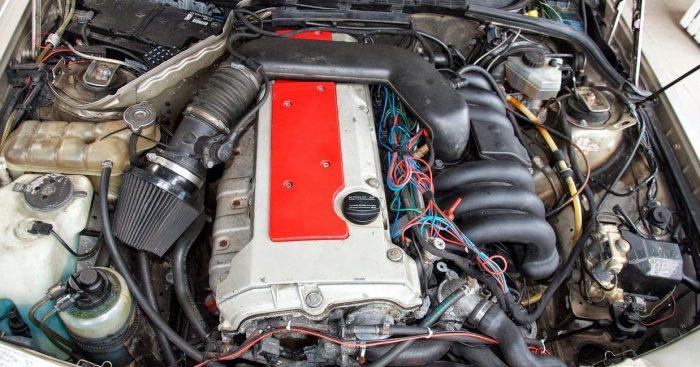
If you feel the engine shaking, the crankshaft damper can be a factor to consider when diagnosing engine vibration causes. Indeed, the main duty of this component is to decrease vibration. In diesel engines, its use is more extensive.
If there is a chance that it is defected or has stopped working for good, your engine will shake even harder. You should contact a mechanic whenever you face this problem.
Faulty engine mount
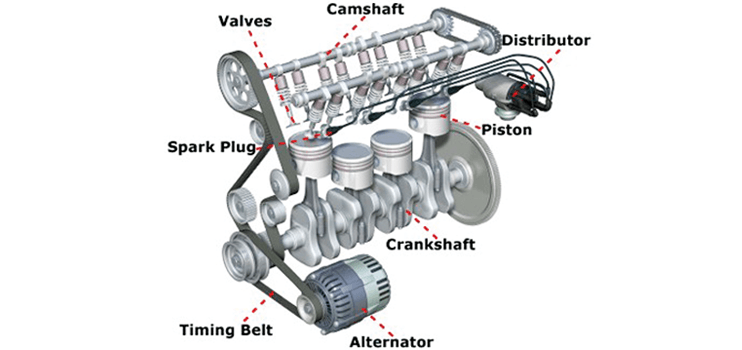
This is another cause of engine vibration. This component keeps the engine attached to the chassis. Besides, it also reduces the vibration of a running engine.
This part doesn’t just get damaged. Reckless driving can be the reason behind it. Similarly, you should see a mechanic to mend your car.
Spark plug issues
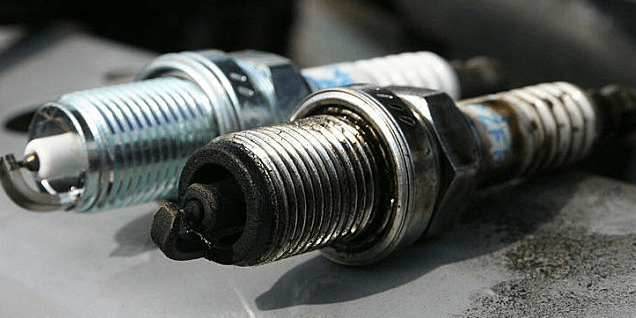
If there is a problem with your vehicle’s spark plugs, the engine will vibrate more than usual. Spark plug removal can be done at home if you have all the tools and knowledge to accomplish the task.
Extreme weather
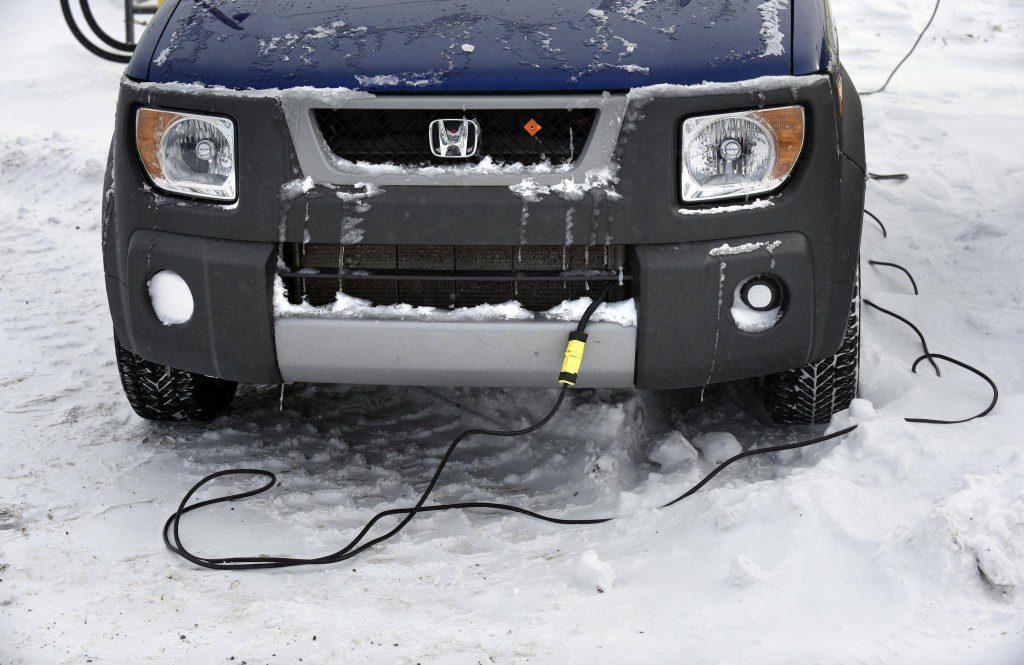
In frosty weather, the engine vibrates more than is normal. No extra measures need to be taken if this problem solves on its own when the car is being driven in normal weather.
In cold weather, the engine cannot run at its optimum level, so vibration increases.
Car axle
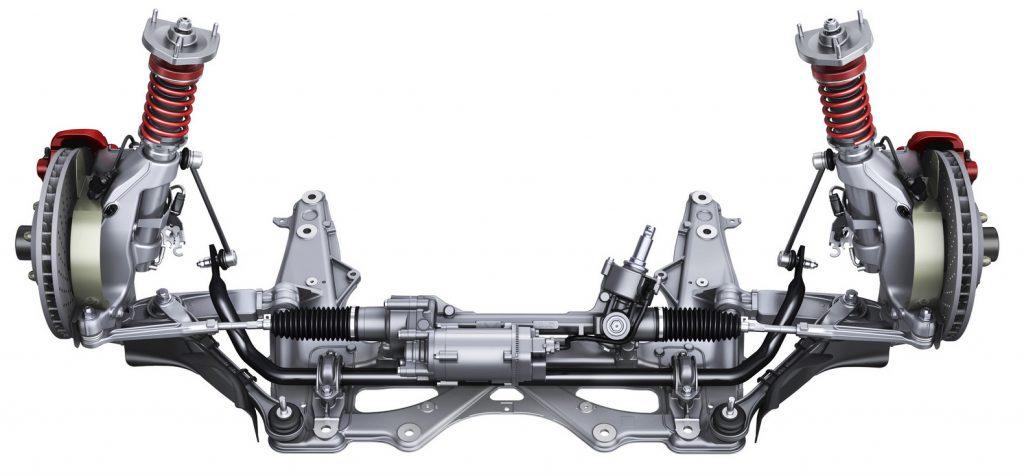
Oftentimes it seems like the engine shaking problem is rooted in the engine itself, whereas in reality, it is the axles that need to be taken care of.
When your car is in a collision, the axles can be damaged, even when there is no apparent sign of damage.
So, you should get a mechanic involved if you are experiencing increased vibration, right after a collision.
Wheel problems
One of the most severe engine vibration causes is related to the wheel. A misaligned wheel or worn-out wheel bearings might be the problem if you feel like the vibration is coming directly through the steering wheel.
Another cause might be the warped ball joints that cause annoying vibration at driving speeds.
Tire Problems
It’s the most common of all the reasons as almost 80% of car vibrations are related to tires. Such vibrations can be fixed through tire balance, tire rotation, or tire replacement.
Brake problems
If the vibration appears at the time of pushing the brake, your car may have a problem with broken or worn-out brake rotors.
Heavy wear and tear can cause the brake rotors to get warped, making it impossible for brake pads and calipers to grip them during the time of applying the brake.
These are some of the common engine vibration problems that might be plaguing your driving experience, it’d better to be look out for one of these causes of car engine vibration and find out what’s the exact reason.
Another great suggestion for you to avoid this problem is to choose a great car with fuel efficiency, reliability, and affordable price from our quality used cars list.
How To Fix Car Engine Vibration
To solve this problem easier, check the video to see how they fix the engine vibration
Low-level transmission fluid, tire issues, or brakes error can all cause car engine shaking. But here we will talk about the cylinder, which is usually the main reason causing vibration to your engine. Here are the steps you should follow:
Step 1: Spot the problem source
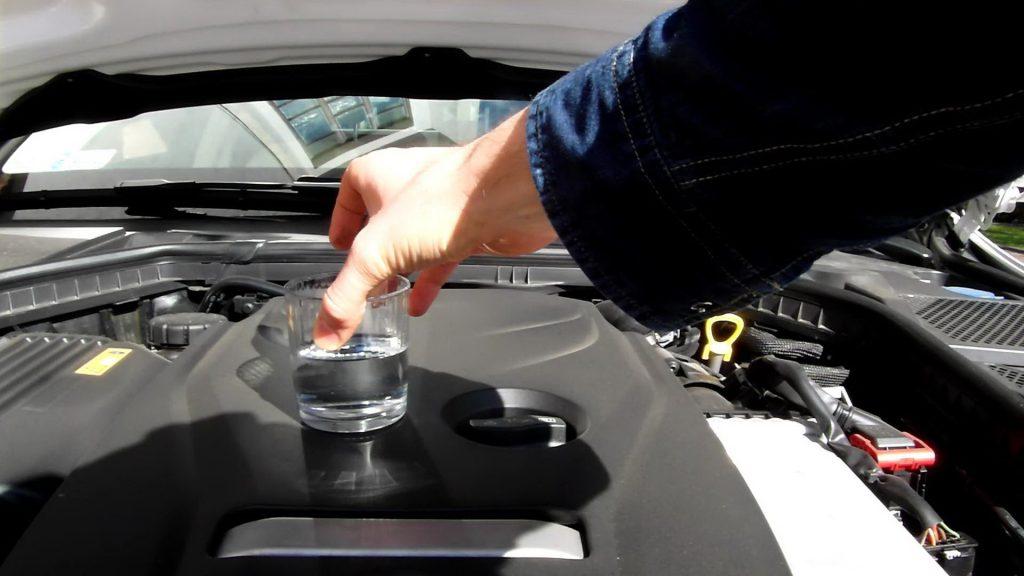
In order to fix any problem, you need to find its source, and it is the same as a cylinder misfire. The easiest way for drivers is to check the diagnostic trouble codes. The checking can help you determine whether your cylinders have one, multiple, or no misfire at all.
OBD-II scanner is a useful tool for this task which can be sold at any car parts store. Easy as it sounds, this first step will save you a lot of time and effort, rather than chasing a dead-end solution.
It is best if you find your cylinders having no problem at all. However, if they really did have misfires, the reasons usually come from one of four systems: control sensors, fuel supply, air supply, or the computer. Drivers can check the amount of air, fuel, or the failure in ignition.
Step 2: Analyze the problem

Understanding the problem from the beginning can be really helpful in this step since different problems have different ways to solve: If you get a single-cylinder misfire, it is often caused by a failure in the engine.
However, random multiple misfires from the cylinder can usually be caused by outside sources, rather than by the engine itself. Last but not least, mechanical failure and unbalanced rotating assembly cause no misfire code.
Single-cylinder misfires
The culprits for this problem are usually fuel injector problems or failures in the ignition. The tip for drivers here is to check spark plugs, ignition coils, and plug wires. If the cylinder’s coil is broken, it is quite easy to determine and repair.
However, many engines use one coil to power two cylinders, so if that single coil has any problem, both cylinders mostly die as well.
Also, if you get a lean condition notification diagnostic code, you are most likely to have a failed fuel injector.
Random multiple misfires
Many drivers are not knowing this, but problems that affect the engine entirely like this one usually result from the “engine support” systems like air intake, fuel supply, or electronics systems.
A dirty airflow sensor, sensor failure, and vacuum leaking air can be potential culprits. Of course, air restrictions in the intake can cause vibrations for your automobile, as well.
Mechanical failures
Problems with the camshaft, damaged head gasket, and broken piston ring,… are mechanic problems, and they often make your car shaky through cylinder misfires. If you get no misfire at all, there is a high chance that you have an unbalanced rotating assembly, causing engine shaking.
Many engines use balance shafts or harmonic balancers to reduce car engine shaking, so if you have one, check it out, since it might be your source of shaking problems.
Step 3: Replace damaged car parts
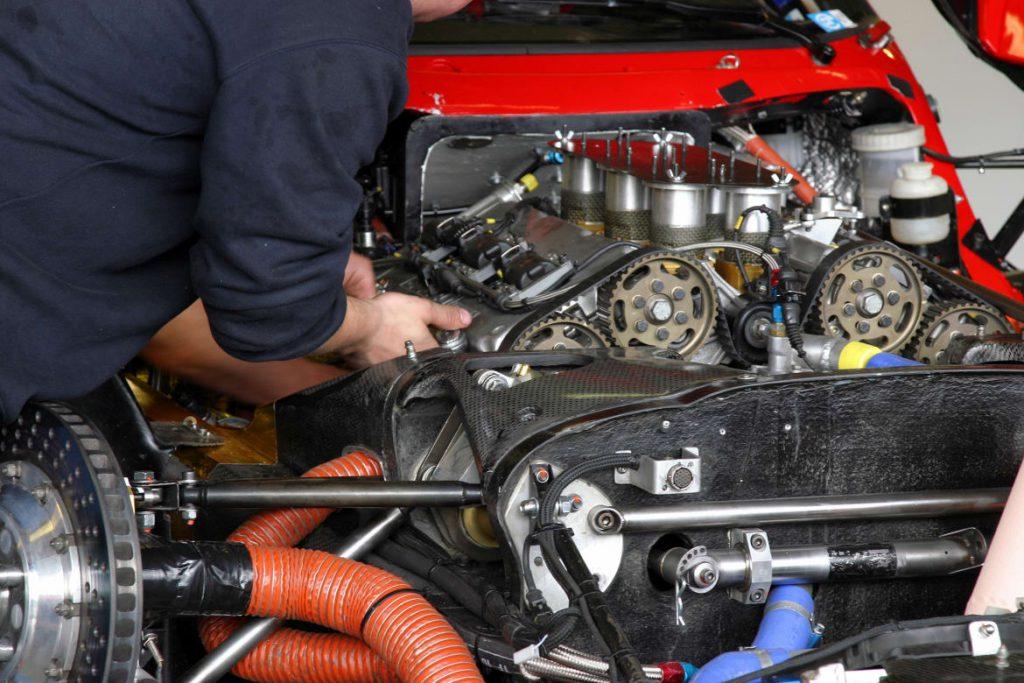
Understanding the condition of your beloved car, it is time to remove the damaged parts. New drivers are recommended to go to a car repair shop, but if you want to take care of the automobile by yourself, here is the tool list that you might need:
- Ratchet Wrench
- Screwdriver
- Engine Pulling A-Frame
- Mallet
- Jack
We will now cover the most common problem with car engine shaking: Vacuum leak, which makes idling slower and damages the engine along with gas mileage.
The sign of awareness in this case is the cracks and holes on the vacuum hoses. Open the trunk to locate the vacuum system, and we will find the vacuum hoses right in the middle. Remember to check the hoses carefully to make sure it is the real problem. Then remove the damaged vacuum hose and set it aside for a while.
After the examination, vacuum lines are the next target to remove. The lines are inside the vacuum hose which was taken earlier. In cold temperatures, the vacuum lines can be damaged and shattered, which could create leaks or be broken. The only solution for that is to install the new ones right after this.
Also, remember to wear gloves and eyewear to protect yourself.
Frequent-Asked Questions About Car Engine Vibration
What is the cause of engine vibration?
Answering this question, it could be anything: From a simple thing like old spark plugs producing unstable power delivery to something serious like broken engine mounts.
Basically, anything unusual shaking coming from the engine is worth taking a look at. Who knows if you can detect a case of terrible engine damage in the process?
There are countless reasons for the engine shaking, but these problems are the most potential criminals:
+ Imbalanced Wheels
+ Misaligned Tire
+ Brake Issues
+ Engine Problems
Why does my car shake at idle?
New drivers might think it is strange that their cars vibrate when stopped. However, shaking while idling is actually quite common. There are many errors and problems which can lead to car engine vibration, yet the most common reason for a car shaking when idle is usually motor mounts. This car part is created and designed to stabilize the car engine while driving. For that reason, disconnected or defective motor mounts will make your car shake violently at idle.
Many types of engine shaking can indicate by loose or damaged timing belts. This problem is well-known by many car owners since its sign of awareness is the signature shaking sensations while stopping. It can also affect the engine.
However, this problem can be solved easily. Drivers can relocate or change the belt, as long as they know its problem.
Lastly, the fuel intake system can also create shaking, even when your car is not moving anymore. After driving for a long time, the debris and dirt buildup will cover the fuel valves, which leads to a dirty fuel intake and shake the engine.




Do you know why my engine is so hot.. Radiator is function well
first check the oil level,check if the water pump is functioning and if you are warm countries like kenya thermostat is the main cause
My car over heats after a long drive to a point i have to wait it to cool down even for six hours
Thank u for sharing
thank you , i can now know why my car engine is vibrating
Thank u for sharing your comment
Thank you so much for the note. I’m not a mechanic but at least I understand what happens when my car encounter such problems.
Thank you for sharing your comment.
I have a similar problem with my car. I will follow your tips to diagnose the problem. Thank you for sharing the tips. I appreciate
Thank you. We will provide more useful information like this. Stay tuned
I have 2002 sienna I feel the car Shake at red light can you tell me why please
I have 2002 sienna I feel the car Shake at red light can you tell me why please
The van drives fine been 2 years
This is fantastic information. Thank you for sharing.
We are happy to receive your comments. Please share with your friends so they can enjoy this article, too.
My car also have such problems, engine hot and some times vibration, its Toyota Rav4 3s help please.
Thank you for contacting Car From Japan. However, we cannot answer your problem because there are many things we need to see at your car. I suggest you bring the car to a local mechanical shop to solve your problem.
Hello sir how r u ?
I need ur help to solve my problem abt my car. My car is a Toyota mark x 2005. When I drive it’s going good but the problem is, when I stop my car, I can feel like the car hit something. It means when go first gear neutral then I feel something hit. I already change my transmission complete n oil but it’s still same. Do u know any solution for my car problem pls? I’ll wait for ur reply
thanks for the usefull infomation
Thank you. We will provide more useful information like this. Stay tuned
Thanks for the updates my engine vibrates on idle and low speed but when I drive a little faster the vibration stops what’s the cause of that
U welcome
Thank you for your belated knowledge that you share with us now I know the reason for my engine to vibrate previously I thought it was because of low silence
My car vibrates only when is not moving, when is in silent, thanks for this.
Thank you. We will provide more useful information like this. Stay tuned
I took my car to a mechanic so that we could replace casket and rings as my car was smoking so much.This of course involved opening the entire engine. Once everything was replaced I started experiencing those vibrations I took the car back and looked the plugs but since then my car has never been the same more so in the morning when I start the engine but when the engines runs for some minutes the vibrations end. What could be the cause of this vibration. Thanks for your advices.
Arigatou. Thank you. Your comments encourage us a lot.
Very good information to vehicle owners or drivers.
We are glad that you like the article. Don’t forget to share with your friends!
Am having a problem with toyota nadia, when starting engine there’s a sound i hear at the first then it stops again.it sound like gogogo then it stops.what could be the cause?
Thank you for sharing this fanstastic information.
Thank you. We will provide more useful information like this. Stay tuned
I have a 1996 Honda integra zc 1600 engine. And I have been having a vibrating problem for about two years now I changed all the mount on the car new plugs and am still having the problem
Thank you for contacting Car From Japan. However, we cannot answer your problem because there are many things we need to see at your car. I suggest you bring the car to a local mechanical shop to solve your problem.
A very informative piece, thanks for keeping us informed
Arigatou. Thank you. Your comments encourage us a lot.
I have Toyota nadia while driving some time my excelator padel doesn’t work then I switch off engine after a minute I start it work my mechanic change the fuel pump in tank change fuel filter even clean throttle but still problem is there
Thank you for contacting Car From Japan. However, we cannot answer your problem because there are many things we need to see at your car. I suggest you bring the car to a local mechanical shop to solve your problem.
Thanx for the knowledge u are putn in us i appreciate continue giving us this knowledge
Thank you. We will provide more useful information like this. Stay tuned
Keep it up it educative analysis. Thanks alot.
Arigatou. Thank you. Your comments encourage us a lot.
Me my car’s footbrake doesn’t go off what could be the problem caldina2000 make
Thank you for contacting Car From Japan. However, we cannot answer your problem because there is many things we need to see at your car. I suggest you to bring the car to a local mechanical shop o solve your problem.
My is misfiring when am doing below 60,above that the firing is normal,can cruise up to 160km/h
Mine is misfiring when am doing below 60,above that the firing is normal,can cruise up to 160km/h
You got a point!
What kind of oil should I use for toyota brevis jcg10 model 2003
What kind of oil should I use for toyota brevis jcg10 model 2003
Nice
We are glad that you like the article. Don’t forget to share with your friends!
This knowledge you are sharing with us ,we appreciate it very much,pliz kip updating us thanks.
Arigatou. Thank you. Your comments encourage us a lot.
Hi,I have a major vibration on my car,when I engage the first gear ie.gear 1 and 2,and when in a slow motion I get a tough/huge vibration that almost wrecks the car,but once in motion the rest of the gears perform well including reverse gear,what could be the problem
Thank you for contacting Car From Japan. However, we cannot answer your problem because there is many things we need to see at your car. I suggest you to bring the car to a local mechanical shop o solve your problem.
Thanx very much for the wonderful explanation.Now am able to diagnose my car.
We are happy to receive your comments. Please share with your friends so they can enjoy this article, too.
How can I get details about the Toyota Levin Apex Twin Cam 2.0 model 1994?
How do you change language in a radio settings from Japanese to English?
This is useful and helpful tips, one time my car had vibration and after reading your advice here car from Japan I checked engine mount and found it was worn out and fixing it, know very ok. Am helping many mechanical issues following your useful tips. Continue being useful to us who are car users.
Engine vibration can come from the center rubber.
The engine vibration also can come from the ‘center rubber’
The engine vibration also can come from ‘center bearing’ also called ‘center rubber’
Hello sir
I really need ur help abt my car problem. My car is a Toyota Mar x 2005. The car is good wen I drive but the only problem is, when I make a first gear neutral, I can feel the car hit something but it’s nothing hit. In other words, when the car tried to stop then the same problem occur. I already changed transmission complete n also the oil but it’s still same, nothing change. I really need ur help to solve my car problem pls. I’ll wait for ur reply. Thanks
Shahbaz, You need to check the engine mountains well. Im not a mechanic but through experience low gears have got power to shake like you bump into something when it changes. Experts may advice well…
i have a vitz model 2005 car having 3 cylinder engine is a problem when it drew for 0ne hour when it switch off it will not start for half hour after one hour it will start automatically i have change the battery . generator.kindly need your help
My vehicle Toyota Vitz 1SZ engine.it has has hard start.Thanks for you help us world wide to understand the efficiency. Of all problems in car.especially the VVTI series.
hi I hope your able to help r advise me whats wrong with my toyota rav4 2003… it starts no problem first time of the day or when it’s cold, after a run it heats up but nothing shows any overheating & temp gauge sits at the half way point,, however when after a run I stop the engine & try to restart it a few minutes later it struggles, the whole car can get to the point of shaking viscously sometimes firing sometimes not leaving me waiting up to 20-45 minutes depending the distance driven & outside weather temperature.. the other day while trying to re-start it after a run the car started shaking madly, thudding noisily but started, however it sounded like a tank when on low revs or idle, the load clunking vanished or reduced while driving returning when slowing down or idle, I’ve replaced the battery thinking thinking this was my start-up problems but today the knocking, thudding is still there but 100 times quieter & I still struggle to re-start the car after a run…. I’m no mechanic & really need some advice or HELP! 🙁 thank you in advance 🙂
Sir
My car vitz 2011 I have problems engine noking
Great information on vehicles…I have a 2008 Diahatsu Boon with less than 1000cc rating engine that uses three mounts…it vibrates heavily when I turn on the AC…can you share what might cause it…please
Sir,
Please my car is vibrating after specific distance maybe after driving 10 km onwards and when idle it starts to shake. I replace all engine supports and check the injectors still cannot fix the problem please maybe you know the problem and you can help me. Thank you so much in advance
Thank you for much sand me car
Thank you for the highlights on why a car engine may be vibrating; and some of the highlights i have seen on this platform. My humble request-Is it possible for you to send me a simple e-summary practical document on looking after your car?
I will be grateful so that before I go to a mechanic, I will be having an idea on what is wrong with my car. Some mechanics also gamble before they eventually get to the root of the problem.
CAN LOW IDLE MAKES CAR TO SHAKE
my 2007 vitz is shaking
I have a honda accord 2008,I noticed that when I driven my brake pedal got stuck,i couldn’t brake, so i managed to stop the car,after that my car started shaking and the engine light start flashing,can u help me please.